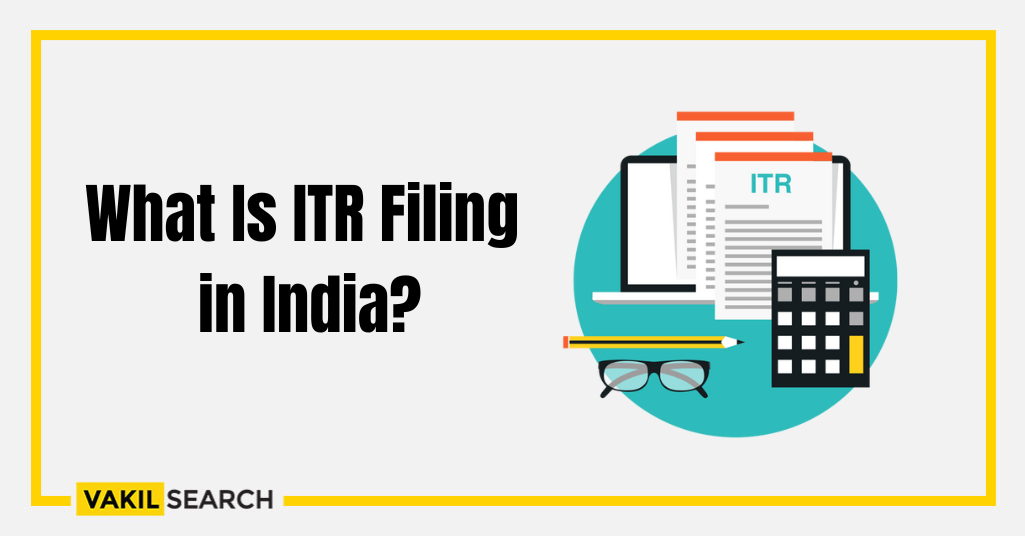An income tax is a small percentage that the government takes from our income. How to get money back if you paid extra tax? Know everything about ITR filing in India?
What Is ITR (Income Tax Return)?
What Is ITR Filing in India?
In simple words, an income tax return is a small percentage that the government takes from our income. We are liable to pay this money out of our income as a law of the nation we live in. This money which is deducted from our income is called tax. We pay income tax only if we are liable to do so. know What Is ITR Filing?
The Government of India drafted India’s Income Tax regulations. A tax on taxable income is levied on all individuals, Hindu Undivided Families (HUFs), businesses (including LLPs), professionals, a municipal government, and any other workers falling under the government regulation. Their pay scale status under these rules determines a person’s tax status. Every person who meets the criteria to be considered an Indian resident is expected to pay tax on their worldwide income. Taxpayers must adhere to guidelines when preparing and submitting their tax returns each year (ITRs).
The Income Tax Department of India uses the Income Tax Return form to receive information from individuals about their earnings and the taxes they owe for the previous year. A taxpayer’s statement in an ITR should be relevant to the fiscal year from April 1 to March 31 of the following year.
Earnings can come from various sources, including salaries, commercial profits, the sale of real estate or other assets, dividends or capital gains, and interest. The Income-tax department would reimburse you if you paid too much tax in a given year.
Is It Mandatory to Submit ITR Filing?
If you earn more than the amount free from taxation by the Government, you must file a tax return according to the tax brackets for each year. You may be penalized for Income Tax Return Filing beyond the required date, which could affect your chances of acquiring a loan or visa.
Is It Required to Submit an Income Tax Return?
You must file your income tax returns if your income exceeds the basic exemption limit set by the Indian tax authorities. Taxpayers have no say in how much tax they pay because the rate is set in stone. In addition to the late filing fines, a delay in submitting your tax returns might harm your ability to secure a loan or a visa for travel. Transform confusion into clarity with ‘What is ITR.’ Enhance your tax knowledge and file returns with confidence and accuracy.
In what Circumstances Should a Taxpayer do ITR Filing?
- Individuals who make more than ₹ 2.5 lakh in a financial year are included regardless of their age. The maximum rises to ₹ 3 lakhs for people in their 60s to 79s, and ₹5 lakhs for people in their 80s and older. Sections 80C to 80U and 80TTA deduction , Section 80TTB additional exemptions under section 10 should be subtracted from the gross income before determining the final taxable amount.
- No matter how much earning a company makes or loses during the year, it still generates income
- Those who want to get a refund on the taxes they’ve paid more than what they’re entitled to pay
- Affluent individuals who have assets or financial interests outside of India
- Transactions made in India by foreign entities that are eligible for treaty benefits
- NRIs with a yearly income in India of more than ₹2.5 lakh.
How to File ITR Online?
Filing ITR online is a convenient and hassle-free process. Here are the steps to file ITR online:
- Register on the income tax e-filing portal using your PAN card details.
- Download the appropriate ITR form based on your income sources and category.
- Fill out the ITR form with accurate details and upload any relevant documents.
- Compute your tax liability and pay any outstanding taxes, if applicable.
- Verify the ITR using one of the available options, such as e-verification, Aadhaar OTP, or sending a signed ITR-V to the CPC.
- An acknowledgment receipt will be generated and sent to your registered email ID upon successful verification.
Which ITR to File?
Choosing the right ITR form to file is important to ensure the accurate and timely filing of your tax return. The appropriate ITR form depends on your income sources and category. Demystify income tax returns with ‘What is ITR.’ Elevate your financial understanding and ensure compliance for a prosperous future.
For example,
- ITR-1 is for individuals with income up to ₹50 lakhs
- ITR-2 is for individuals and HUFs with income from capital gains or foreign assets.
It is advisable to consult a tax professional or use an online ITR filing service to determine the correct ITR form for your tax return.
Documents Required to Fill ITR
To fill out ITR, you need to provide certain documents such as
- PAN card
- Aadhaar card
- Form 16 or salary certificate
- TDS certificates
- Bank statements
- Investment and property details, etc.
Ensure that you have all the required documents in hand before starting to fill out the ITR form.
Filing ITR is a crucial task and needs to be done correctly to avoid penalties and legal complications. It is advisable to take the help of a professional tax consultant or use online tax filing services to ensure error-free and timely filing of your ITR.
Who Has to Submit an ITR?
With this background knowledge, let’s look at who is required by law to submit an Income Tax Return Filing each year, both as an individual and as an organization.
Individuals younger than 59 with an annual income more significant than ₹ 2.5 lakhs are eligible to apply. Senior persons aged 60 to 79 are exempt from paying income tax on amounts up to ₹ 3 lakhs, while those aged 80 and more are exempt from paying income tax on payments up to ₹ 5 lakhs. Section 10 of the Internal Revenue Code mandates that deductions should not reduce income. Discover the significance of ITR filing and ensure tax compliance for financial well-being with our ‘What is ITR’ guide.
- Although it may have lost money over the period, it must still be registered as a business and have a year-to-year income
- A taxpayer seeking a refund of excess income tax or tax deducted from one’s yearly earnings
- An individual who has a financial interest outside of the country
- Treaty-benefitting Indian corporation that conducts business in the country
- NRIs who make more than ₹ 2.5 lakh per year are included in this category.
How Will I Get My Money Back if I Pay Excess Tax?
Before requesting a refund of overpaid taxes, keep in mind that you have a deadline to meet. You must file your tax return for the relevant assessment year within the specified timeframe to be eligible for a refund. The financial year (FY) after a previous financial year is the assessment year.
Checking Your ITR Status Online: How Do You Do It?
You may easily track the progress of your IT Return on the e-filing website of the Government of India after you’ve submitted it. A few simple ways to verify your ITR status can be found on the website, depending on whether or not you have an account. What Is ITR Filing?
When you don’t have a login, You can access the ITR by clicking on the ITR status link: https://incometaxindia.gov.in/Pages/tax-services/file-income-tax-return.aspx on the left-hand side of the website. Your PAN number, ITR acknowledgement number, and captcha code will be entered on the next page. Once you’ve entered your information, you’ll see if you need to file a tax return. Access the website through your username and password. After that, select ‘see returns or forms’ from the dropdown menu. Select the tax year and the corresponding tax return from the dropdown menu. After that, you’ll be able to see if your Income Tax Return has been processed or verified.










